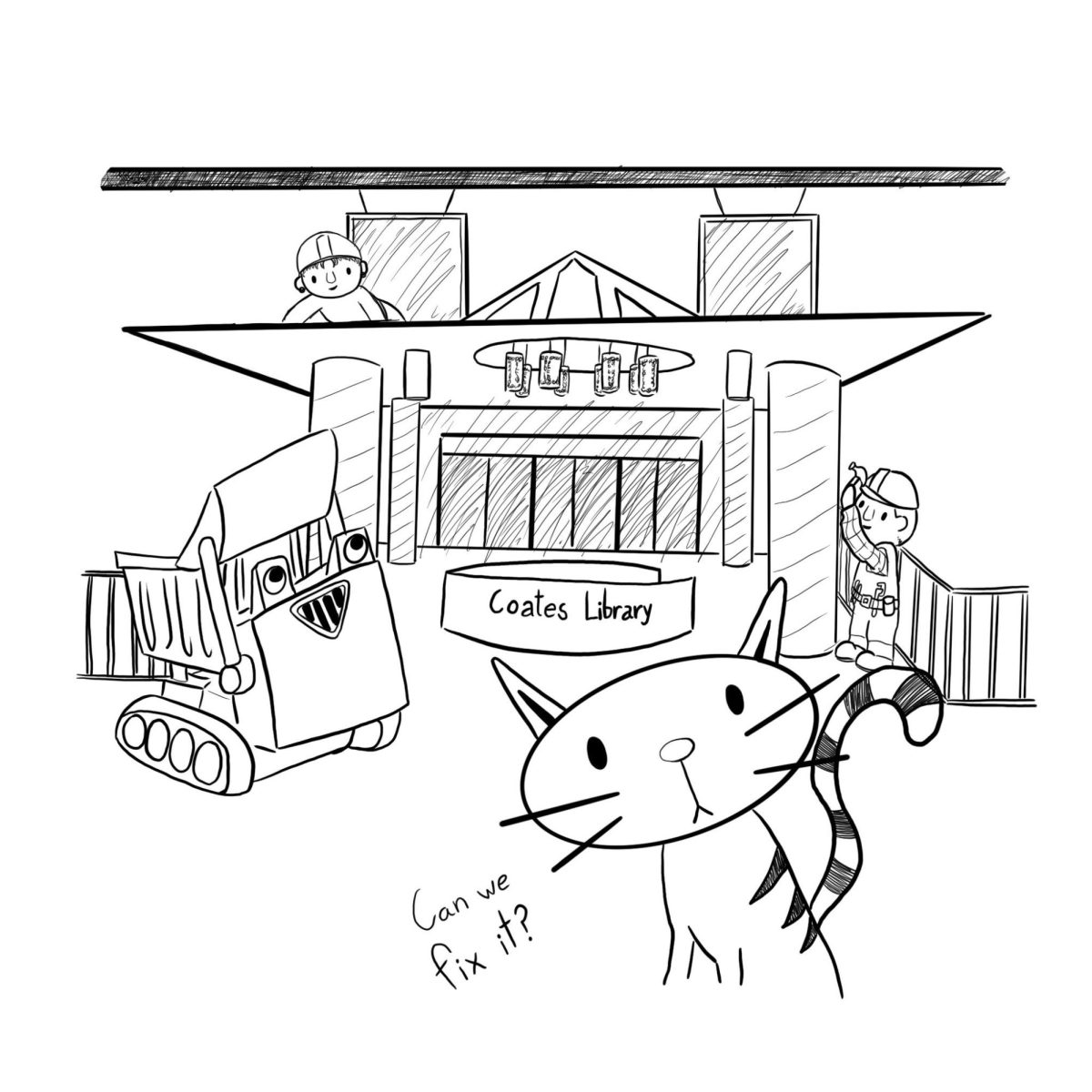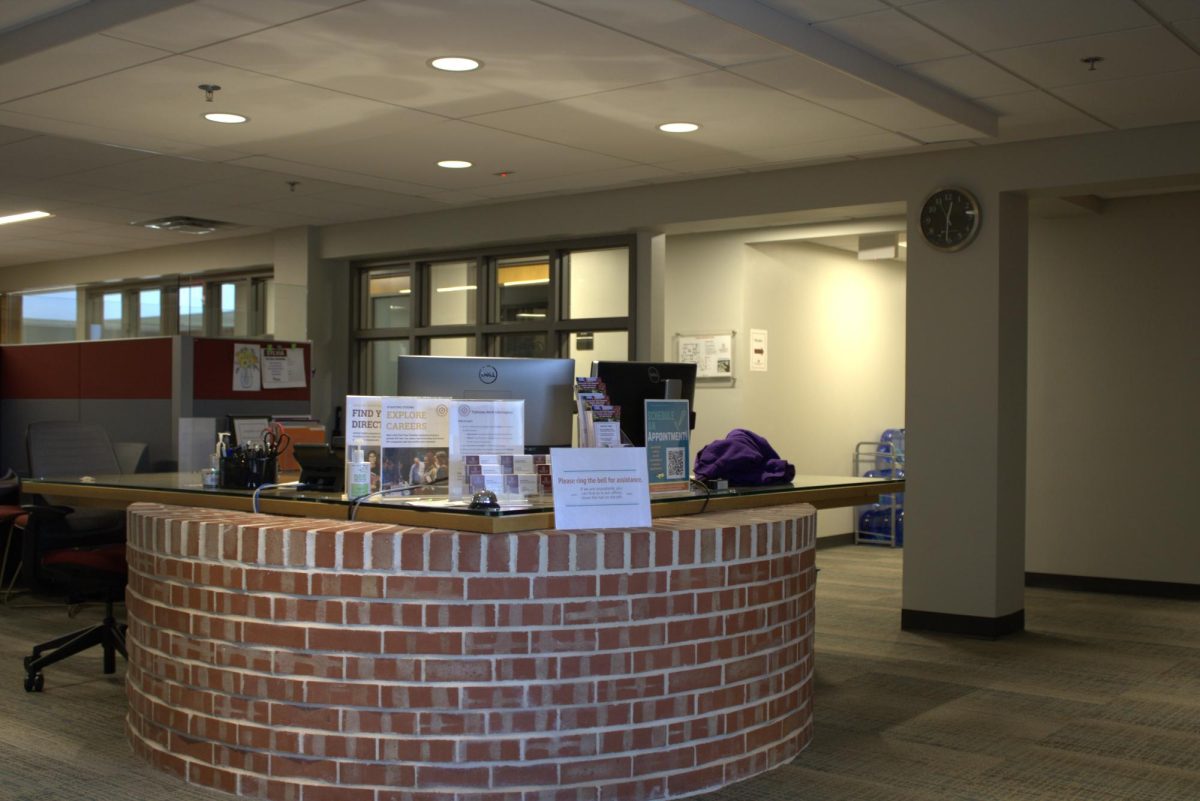On Friday, April 12, Trinity’s faculty will vote on a proposed gutting of the Foreign Language (FL) requirement. Currently, most students must take at least three semesters of a non-English language. The new proposed curriculum would mandate most students to still take at least two semesters of a FL but would allow for the completion of the final credit through either an intermediate-level language class or a Global Awareness (GA) credit, most of which are in English.
To be blunt, this is a bad proposal that will hurt the school, the Modern Languages & Literatures (MLL) department and the student body. The faculty were initially told in a rationale document that MLL was in support of the proposal, even though Rita Urquijo-Ruiz, Spanish professor and acting chair of MLL, never had a meeting concerning the proposed changes. To make matters worse, the school failed to take accountability for this misinformation upon protest by Urquijo-Ruiz. An important administrative vote by the University Curriculum Council (UCC) has already been made on the basis of this misinformation, and if not properly corrected, the faculty will be making their decision on April 12 under similar circumstances.
On Feb. 15, the faculty received the aforementioned rationale document from a special committee formed under the authority of the UCC. German professor Heather Sullivan provided the following excerpt, which stated: “After consultation with the Interim Dean of the Humanities and Arts (Kyle Gillette), and the Chair of Modern Languages, it became clear that the third required semester of a given foreign language sequence is intended to exposure [sic] students to global culture. This aligns with the goals of the Global Awareness Capacity. The Dean, Chair of MML, and Committee members therefore advise combining these requirements to meet the overall objectives of requiring fewer courses while maintaining the original goals of the Pathways curriculum.”
This is a lie. Once again, Urquijo-Ruiz never had a meeting concerning the proposed changes, and is strongly opposed to them. “I never had a meeting with any members of that committee. I never had a meeting with the UCC. … So it was disingenuous for that email to have gone out stating something that was not true,” she said to me.
Urquijo-Ruiz further elaborated on MLL’s opposition to the proposed change. “In Modern Languages and Literatures, we sincerely and absolutely believe that students need to have not just an exposure to the language, but a proficiency in the language,” she said. “We feel that one or two courses at the 1000 level in another language other than English is nothing. You barely dabble.”
Speaking from personal experience, I strongly agree. I’m a double-major in history and German studies. My German classes and professors have occupied a place of paramount centrality to both my experience at Trinity and abroad in Freiburg, Germany, and without a doubt, I would have received a weaker education without the current FL requirement. I can confidently say that if I had been offered the choice to take a GA course in English instead of GERM-2401, I would have taken the GA, dropped German and been all the worse for it. Learning a new language is a difficult and daunting task, and human instinct is to choose the path of least resistance.
The disinformation about Urquijo-Ruiz’s stance on the proposal is critical, and it is impacting the process behind the proposed changes to FL. In short, The UCC must pre-approve all proposed curriculum changes before the larger body of faculty can vote on them, but the UCC voted for the curriculum proposal under the incorrect assumption that the MLL department was in support of the changes.
Urquijo-Ruiz explained how the disinformation impacted the UCC vote, and why it will affect the faculty vote unless properly corrected. “If the math department said that they agreed to something, and it’s about math, I’m going to trust the math department knows what they’re doing and I’m going to vote for that even if I don’t know like all the integral details,” she said.
On March 28, well after the UCC voted under false pretenses, Trinity redistributed the rationale document with the disinformation removed. However, the new document did not explicitly state what had been edited nor what the substance of the edits were. Barring a line-by-line comparison of the original and edited rationale documents, none of the faculty would have been made aware of the original disingenuous claims. This attempted fix is not the olive branch it was designed to appear as. Anything short of a strong, consistent and public correction of the misinformation is incompetence bordering on malice.
All this has happened despite Urquijo-Ruiz’s determination to have the misinformation prominently and clearly corrected. Subsequent post-hoc meetings between the committee and MLL have failed to result in a public announcement of MLL’s strong opposition to the proposed changes nor an acknowledgement of the false pretenses under which the UCC approved the curriculum proposal.
This sequence of events paints the school in a poor light, to say the absolute least. At best, Trinity failed to adequately address and correct misinformation critical to significant proposed changes to the curriculum. At worst, the school lied to the faculty and deliberately obfuscated important information to further its own interests.
This story is incomplete without its broader context. With lower course enrollments, fewer majors and staff and funding cuts to departments, modern language education across the country is in decline. Between 2013 and 2016 alone, a staggering 651 language programs were cut, according to the Modern Languages Association (MLA). In 2023, West Virginia University announced plans to cut nearly the entirety of its language department. Ultimately, the entire department of Modern Languages was dismantled, 169 faculty were fired and only classes (but not majors) in Chinese and Spanish were retained at WVU’s main campus.
The effects of this dismantling and/or deemphasis of language education shouldn’t be ignored. It will result in a deleterious cycle wherein more college-educated Americans will remain monolingual, warranting fewer future language teachers, less language education and thus even fewer language students. In a country already notorious for its monolingualism, failing to strongly support language education will weaken American multiculturalism, encourage xenophobia and result in a less pluralistic and culturally dynamic society.
Languages are vital to the philosophical foundation of a liberal arts education, and both the substance of the proposed changes and Trinity’s behavior surrounding the proposal reflects poorly on the school’s commitment to its principles. I have benefited enormously from the Modern Languages department. Many of my favorite classes and favorite professors have come from Modern Languages, and I would not have accessed the wealth of knowledge and experiences offered by the department without the 2301 requirement. I emphatically oppose the proposed changes, and I find the University’s disingenuous conduct surrounding the proposal disquieting and upsetting.
However, we can and will right these wrongs. The faculty vote is this Friday. I strongly encourage any language students currently reading to tell their professors, in any department, to oppose the proposed changes to the FL requirement. I strongly encourage any faculty reading to oppose the FL proposal. If you care about Trinity, you should care about the proposal and the threat it poses to our community and the liberal arts education at its heart.
Categories:
Vote NO on the proposed change to the FL requirement
The change to the core Foreign Language requirement should not be passed
More to Discover
About the Contributors

Kait Nash, Photographer
What’s up! My name is Kait Nash (they/them/theirs) and I am a photographer for the Trinitonian. I am a sophomore from Pflugerville and Kyle, Texas and I am hoping to double major in Communications and Art with a minor in Spanish. On campus, I participate in Chi Beta Epsilon, the Mirage, the CAT Alliance, and the Street Team. I enjoy watching movies at the theaters, hiking in new places, going out with friends, and taking tons of photos for any event.

Diya Contractor, Special Sections Editor and Opinion Editor
My name is Diya Contractor (she/her/hers). I’m a junior from Sugar Land, TX majoring in political science and minoring in business. I work as the opinion and special section editor for the Trinitonian. Aside from that, I’m also a peer tutor and president of TU Rotaract. In my very limited free time I enjoy crocheting, reading, and booing during presidential press conferences.




